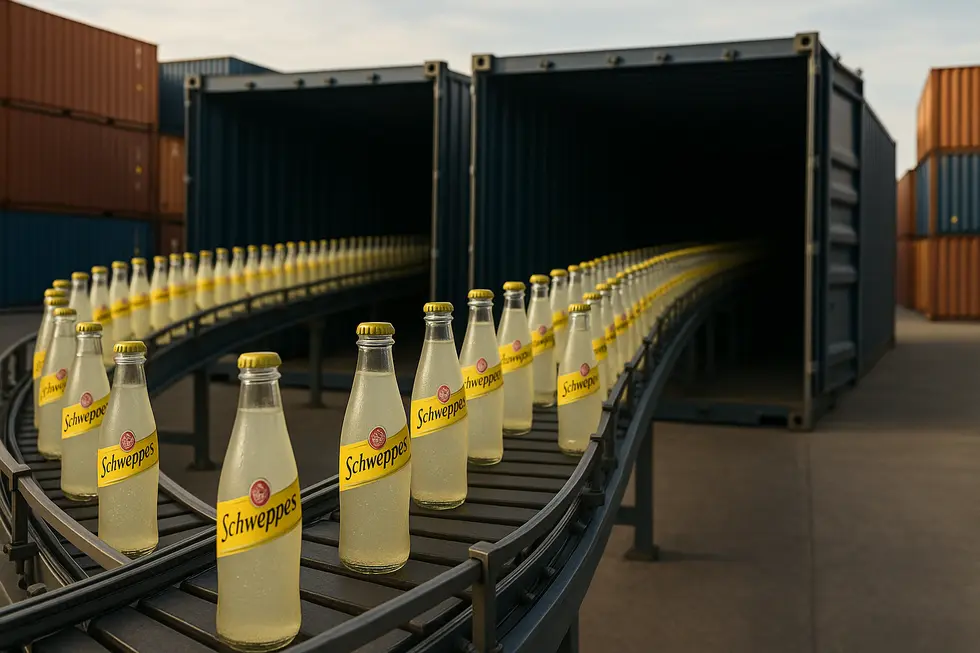No products in the cart.
Beverages News, Schweppes, Soft Drinks
Maximizing Shelf Life: A Guide for Schweppes Export Success
Schweppes, a brand synonymous with quality beverages, faces unique challenges when exporting products globally. Ensuring their products maintain quality and freshness during international transport is pivotal for wholesale importers. This article delves into the nuanced strategies employed by Schweppes to extend shelf life, addressing global distribution hurdles, quality control, consumer preferences, and innovative packaging solutions. Each chapter provides insights into how these elements support sustained product excellence.
Table of Contents
Maximizing Efficiency in Exporting Schweppes Products
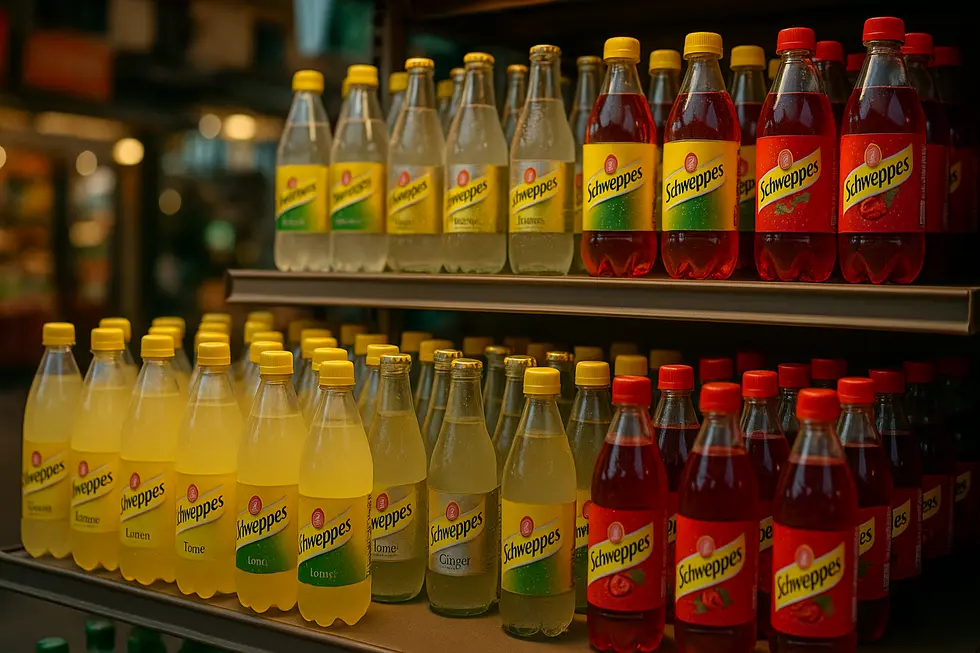
Efficiency in exporting is a cornerstone for Schweppes as it navigates global markets. At the heart of this lies an understanding of the product’s shelf life, particularly for items like tonic water, which possess a shelf life of up to 12 months from the manufacturing date. This stability stems from the resilience of its ingredients—soda water, citric acid, quinine, and sweeteners—ensuring the beverage remains fresh during extended travel.
Distributors and exporters must leverage this 12-month period by meticulously planning logistics and inventory management. By accounting for production dates and transportation timelines, businesses can avoid the pitfalls of expired merchandise. Effective inventory strategies, such as prioritizing older stock, help reduce waste and ensure that products reach consumers in optimal condition.
Transport challenges present additional hurdles, as overseas or distant shipments may take longer than the typical few days. Thus, precise coordination is imperative to adhere to delivery windows that respect the tonic’s shelf life. Robust packaging also plays a critical role in maintaining product integrity against the rigors of global shipping.
By embracing these practices, exporters can safeguard the quality of Schweppes products throughout their journey.
Navigating Global Distribution: The Challenges of Schweppes Product Export
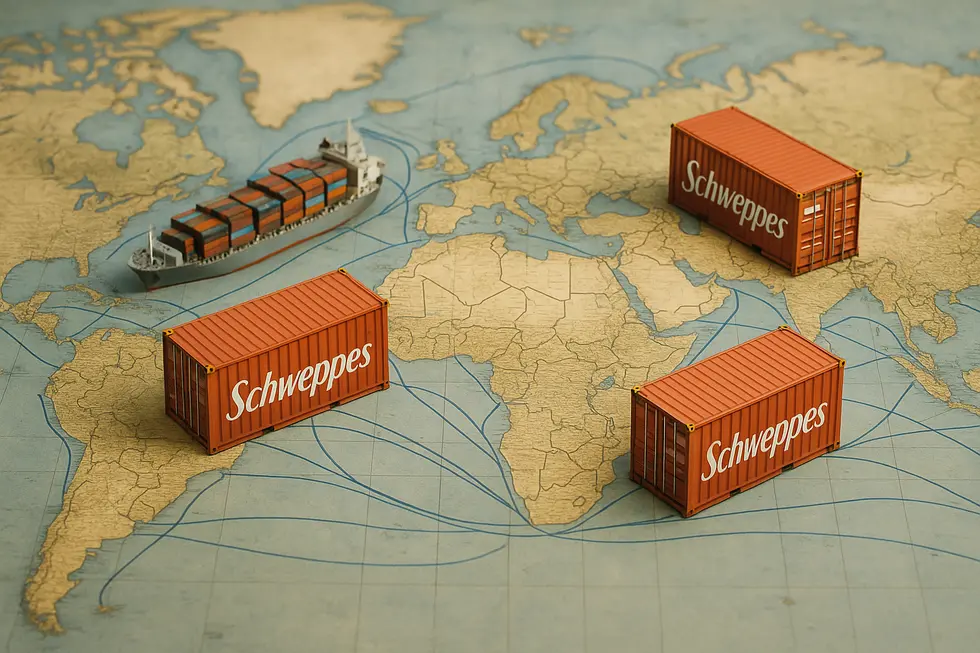
The global distribution of Schweppes products presents a mosaic of challenges tied to dynamic market trends, intricate supply chains, and shifting consumer preferences. As the carbonated water market, inclusive of Schweppes’ tonic water, projects a steady growth rate of 3.8% annually through 2033, it underscores the necessity for a seamless spread across diverse channels like supermarkets, specialty beverage shops, and burgeoning online platforms. Ensuring an efficient distribution framework requires well-oiled logistics to cater to global demand variations and expectations.
Still, production bottlenecks can stymie these efforts. Schweppes has tackled this by investing in advanced production facilities, such as a state-of-the-art PET line in Zimbabwe, which ramped up capacity threefold, boosted resource usage, and curtailed emissions. However, implementing these advances globally demands navigating local infrastructure constraints and financial hurdles.
Packaging also plays a critical role in product safety during transit, given the delicate nature of carbonated drinks facing pressure changes in travel. Schweppes’ partners must therefore align with stringent packaging norms to prevent damage. Competitive pressures further compel Schweppes to synchronize distribution with marketing blitzes, enhancing visibility and sales through strategic deployments.
Regional taste diversity requires bespoke strategies, complicating uniformity in offerings. North America leads the market, yet tailored flavor innovations are key in capturing other regions. Managing these layered complexities necessitates an agile, globally coherent distribution network — a challenge that Schweppes approaches with cautious optimism. For a deeper dive into Schweppes’ market channels, visit businessresearchinsights.com.
Ensuring Quality and Safety in Exporting Schweppes Products
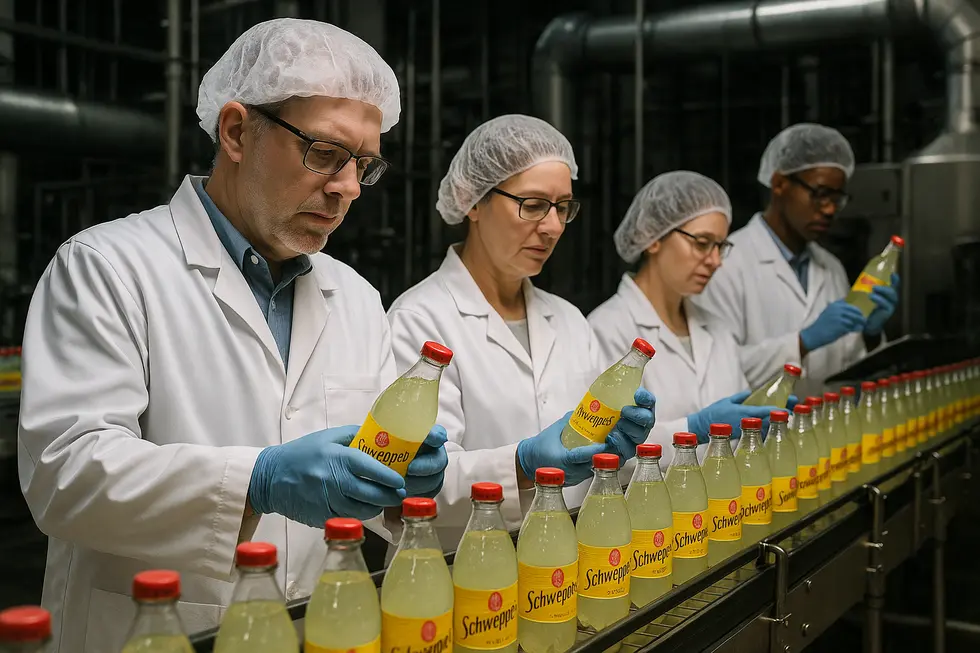
Exporting beverages like Schweppes requires stringent quality control and safety measures to ensure that products maintain their integrity from production through to consumption. Compliance with international food safety standards such as ISO 22000 and HACCP is pivotal. These frameworks emphasize rigorous hazard analysis and critical control points, which are essential for preventing contaminants in foods and beverages intended for global markets. Furthermore, the raw ingredients undergo comprehensive quality assurance checks, being tested for contaminants, allergens, and residues, which are critical to achieving a high standard of product safety.
During production, state-of-the-art facilities employ robust sanitation protocols and microbial testing to ensure products remain safe and uncontaminated. The use of allergen controls and traceability systems allows for seamless operations, mitigating risks of cross-contamination or production errors. Additionally, packaging plays a crucial role in preserving product quality during export. Packaging integrity checks ensure that containers are durable and properly sealed, facilitating prolonged shelf life. Correct labeling, including expiration dates and batch codes, is mandated to provide clear information to both retailers and consumers.
Schweppes may also rely on third-party audits to attain certifications like Good Manufacturing Practices (GMP), enhancing their credibility in international markets. While specific proprietary protocols are not detailed in public resources, these measures reflect industry standards crucial to maintaining consumer trust. For more detailed insights, industry reports or regulatory filings might be consulted.
Global Taste Meets Local Preferences: Schweppes’ Regional Export Strategy
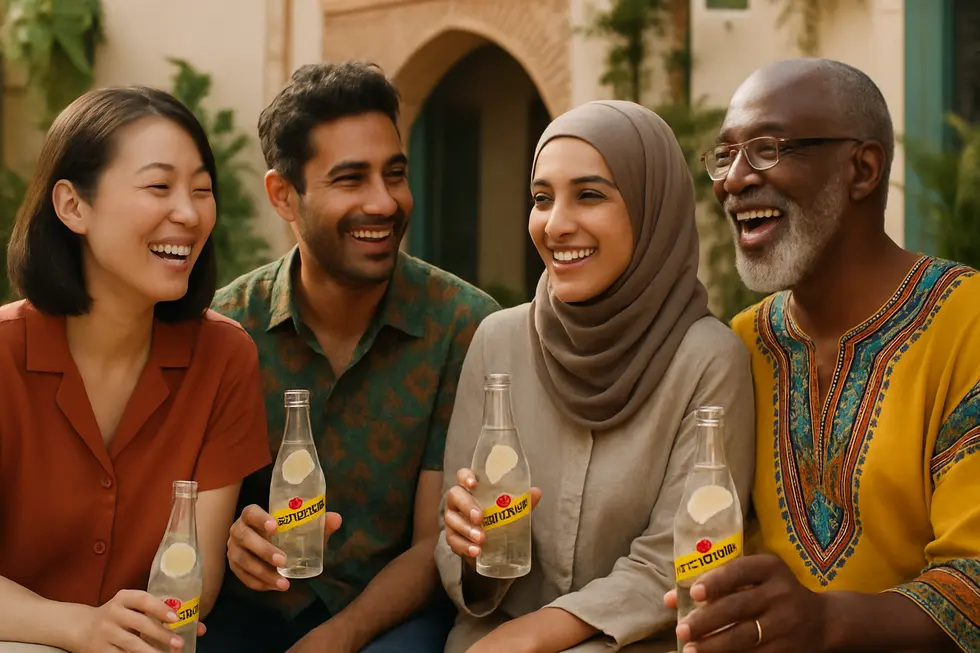
In the dynamic world of beverage exports, Schweppes exemplifies how a brand can skillfully balance its global identity with regional nuances. At the heart of this strategy lies a deep understanding of consumer preferences and the necessity for regional adaptations that cater to diverse markets worldwide.
Schweppes acknowledges the global pivot towards healthier lifestyles, prompting the company to adjust its formulations to meet consumer demands. For instance, the sugar content in the Oasis Tropical drink was reduced by 38% over a span of years in France, aligning with local tastes and the increasing global desire for wellness-oriented beverages. This commitment to consumer-centric innovation is inspired by Japanese business principles, like Gemba and Seikatsusha, ensuring that Schweppes’ offerings integrate seamlessly into consumers’ daily lives across markets.
In emerging regions such as India, Brazil, and Indonesia, where the penetration of carbonated water lags, Schweppes embraces local flavors, introducing tropical fruits and herbs in its variants. This strategy connects with younger populations that seek authenticity but are also attracted to Western-inspired products. By establishing R&D facilities in key European cities, Schweppes proficiently modifies recipes to align with local preferences while preserving the brand’s consistent quality globally.
Overall, Schweppes’ export strategy highlights the importance of balancing brand consistency with cultural sensitivity, ensuring sustained growth in international markets by fulfilling regional tastes and preferences. For further insights on sugar reduction initiatives, visit euronews.com.
Innovative Packaging: Enhancing Schweppes Longevity for Export
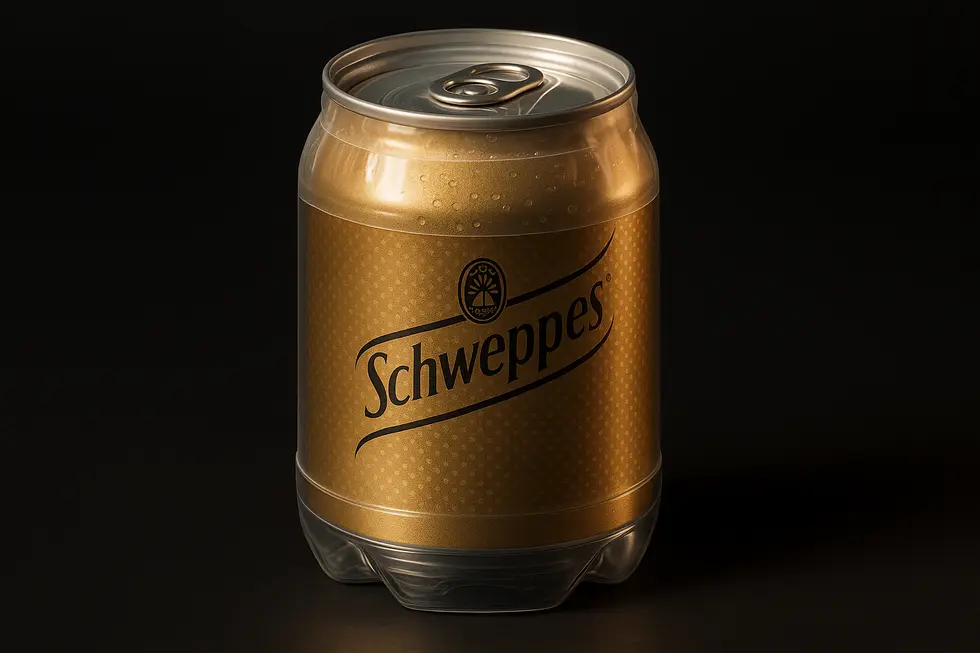
In the quest to optimize the shelf life of Schweppes beverages for export, innovative packaging stands out as a key strategy. By employing advanced materials and technologies, Schweppes ensures product integrity and extends freshness while maintaining consumer appeal.
Barrier packaging utilizes materials engineered to resist oxygen, moisture, and light, effectively preventing oxidation and carbonation loss in beverages. These barriers are crucial for retaining the effervescence and flavor integrity of products over long shipping periods, significantly impacting the export market.
Additionally, light-protective packaging plays a vital role. By integrating UV-resistant features, such as tinted glass bottles or opaque cans, this technology shields products from light-induced degradation, preserving their quality. This is especially critical since light exposure can trigger unfavorable chemical reactions that alter a beverage’s taste and aroma.
Eco-conscious consumers also appreciate sustainable materials like recyclable aluminum and biodegradable plastics. These materials are not only environmentally friendly but also contribute to reducing the logistical carbon footprint, aligning with global trends toward sustainability.
Moreover, cutting-edge sealing technologies offer airtight seals that are imperative for maintaining product carbonation and preventing external contamination. This modern approach balances functionality with sustainability, meeting the demands of both markets and consumers. For more insights into beverage packaging innovations, please visit Packaging Innovations Article.
Final thoughts
Through comprehensive strategies in shelf-life optimization, quality control, and tailored packaging, Schweppes addresses the complex demands of global exports. These concerted efforts ensure that products arrive fresh and appealing to consumers, thus maintaining brand integrity and customer satisfaction worldwide. By understanding these aspects, wholesale importers can better navigate the challenges of international markets.
Looking for a reliable Schweppes supplier in Asia? Reach out today to discuss supply chain partnerships and export solutions.
About us
Asia Grocery Co., Ltd is a trusted distributor, wholesaler, and exporter of fast-moving consumer goods (FMCG) from Vietnam, backed by over 20 years of expertise. We deliver authentic products from globally recognized brands such as P&G, Unilever, Redbull, Coca-Cola, Pepsi, Asiadeli, along with traditional and culturally significant Asian products, catering to customers worldwide with a special focus on Vietnamese and Asian communities abroad.

